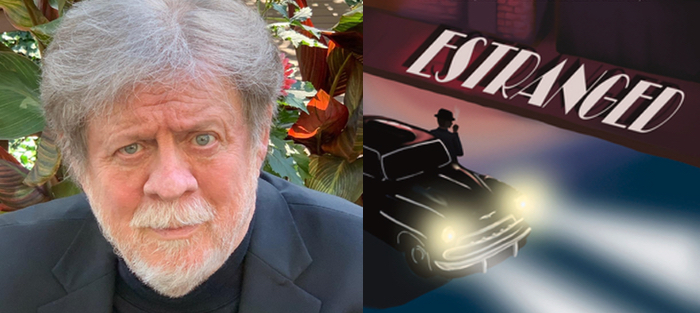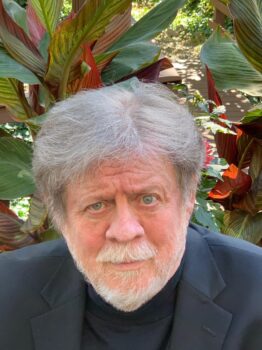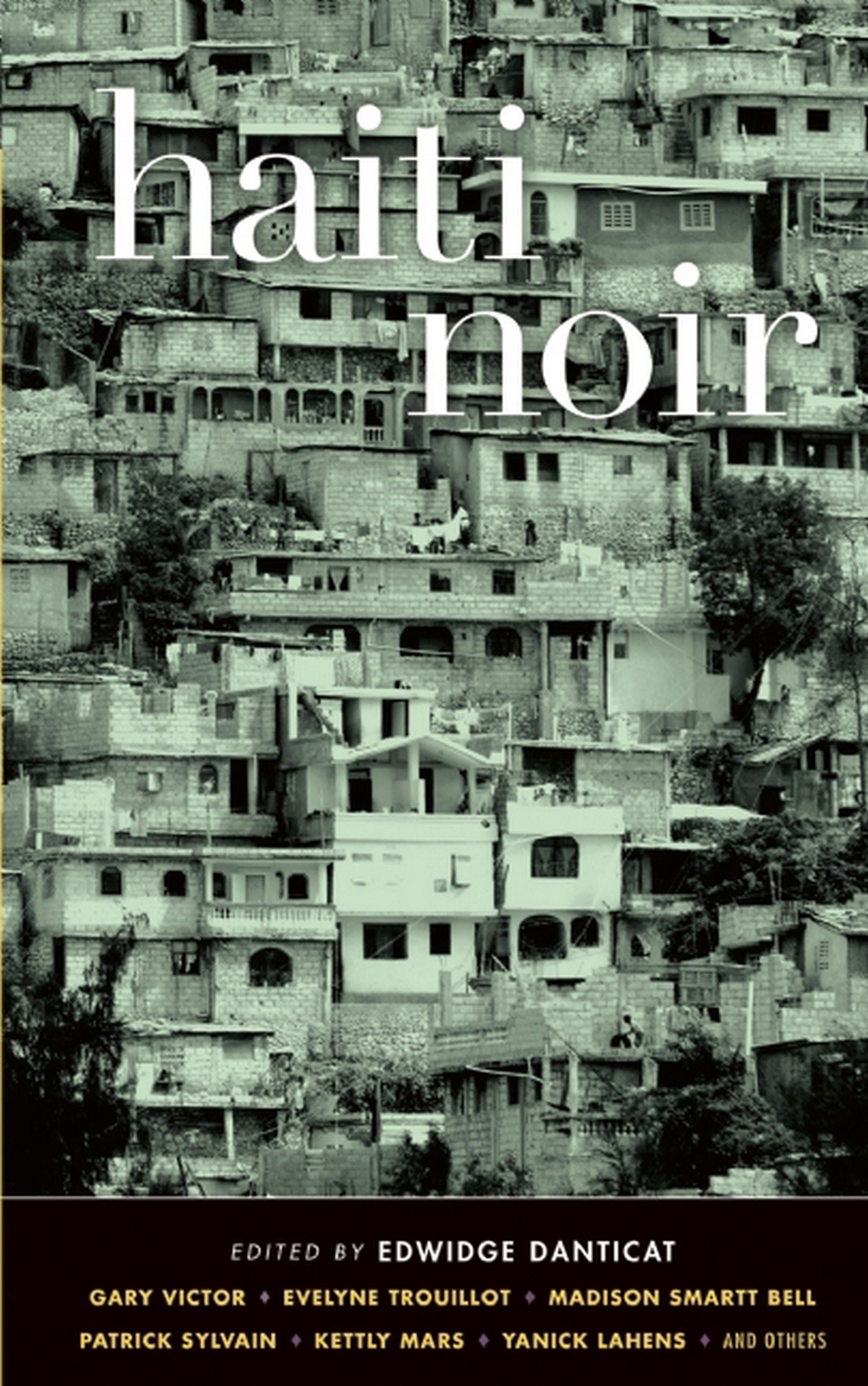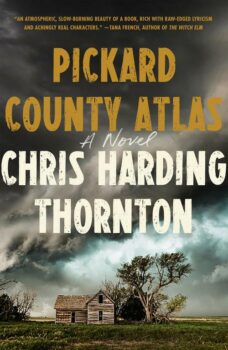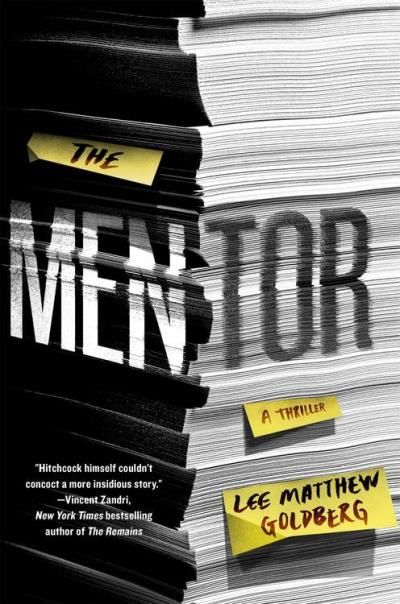The voice is what first grabbed me in Charles Lamar Phillips’s novel Estranged (Regal House Publishing). The narrator, Randall “Dell” Harker, puts on toughness like a suit, but he’s honest enough to have regrets, and he’s got a sense of humor. He also has a keen eye for social levels. This is one thing a novel like Estranged can give us that Netflix never will: the sense of people together in a room and judging each other, striving to signal their status and maintain it. Harker decodes the displays with apparent simplicity in lines like “She smiled her disapproval.” Yes, Netflix can show us a smile–but it will never fit that disapproving smile into the conscious experience of the person being smiled at, as Phillips does in that scene.
The book is set in 1950, in what would later be remembered as the McCarthy Era. Coming at it in 2021, it’s impossible to ignore certain resonances with our recent history. Why do demagogues win? Do people somehow crave being lied to? At the same time, Phillips guides us vividly back to a world that is gone now, in which getting the news meant newspapers, and the papers had a certain weight and even a smell. We talked in March of 2021, just after the book’s publication.
Interview:
James Whorton, Jr.: I don’t want to give too much away, but there is a shooting in Estranged, and it struck me as unusually real-seeming. In so many stories, the person who is shot either drops dead on the spot or is back in action the next day, taped up and ready to go. Here, the long aftermath becomes part of the story.
Charles Lamar Phillips: A couple of things about that. First, when I knew I was going to be using a few generic conventions of tough-guy fiction for other reasons, I decided it would also be aesthetically fulfilling to try to sort of turn them on their heads, to “correct” them, make them more realistic in a banal everyday sense rather than in the brutal noir sense of violent realism. I wanted to cut back the action and draft it (in this case, the event of being shot) into the structure of the story in a way some readers might find artful and interesting. So, not only does this guy get shot, he really gets shot, and it hurts him and messes up his body, his job, his head, and his life and, consequently, structurally, brings the present-time narrative action to a standstill. Second, to tell the truth, it offered me some good opportunities for exposition I couldn’t figure a better way to get into the story.
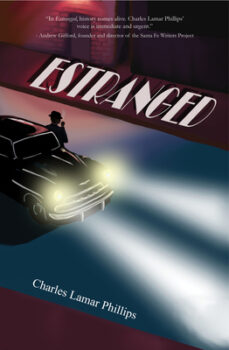 Also, come to think of it, it was a narratively easy way to hit some themes I had in mind, too, just the way, say, the hospital stay in Hemingway’s “The Gambler, The Nun, and the Radio” allowed him to showcase some of his typical obsessions more elegantly than he did in other stories. And, oh yeah, oh yeah, it also gave me a chance to ping some Philoctetes allusions and play off all the literary hullabaloo around Edmund Wilson’s the wound-and-the-bow theory of literature, which was current during the time-frame of the novel–a type of obsessive English-major in-joke, I guess, given how much Wilson famously despised the “boys in the backroom” of tough-guy fiction, just something I found funny in this context, though who knows if most readers will even get the arcane references much less the joke.
Also, come to think of it, it was a narratively easy way to hit some themes I had in mind, too, just the way, say, the hospital stay in Hemingway’s “The Gambler, The Nun, and the Radio” allowed him to showcase some of his typical obsessions more elegantly than he did in other stories. And, oh yeah, oh yeah, it also gave me a chance to ping some Philoctetes allusions and play off all the literary hullabaloo around Edmund Wilson’s the wound-and-the-bow theory of literature, which was current during the time-frame of the novel–a type of obsessive English-major in-joke, I guess, given how much Wilson famously despised the “boys in the backroom” of tough-guy fiction, just something I found funny in this context, though who knows if most readers will even get the arcane references much less the joke.
One of my favorite lines is when the shooting victim finds himself in a dreary hospital where the patients are served “tomato juice with most of the tomato removed.” That’s a funny line, typical of Randall Harker.
Yeah, Randall has a kind of clever patter and funny sarcasm he uses to keep the world at bay and sandpaper reality to his liking. Clever enough, anyway, I hoped, to keep the reader interested in hearing what he had to say over a hundred thousand words. It’s the risk of first-person narrative; if you keep the narrator’s voice honest, you have to hope it’s entertaining enough that the reader will tolerate it even when the character it represents turns out to be as unlikable and flawed–sometimes weak, sometimes corrupt, sometimes disappointing–as he needs to be for the novel to be true to its world. And if you drop out of that voice, if you cheat and use your own smarmy author’s wordings and positions instead, the reader sees it–and more importantly, hears it–pretty quickly, I suspect. And even if you get away with it a couple of times, such cheating mars the art.
Though the book draws on conventions of noir writing, sometimes at crucial moments it breaks out of those conventions. Characters will open up in a way that is raw and vulnerable.
I first came to noir fiction in Iowa City when a couple of workshop buddies–the poets Larry Levis and David St. John–turned me on to Dashiell Hammett and Raymond Chandler. They were both California boys, we were friends, and we’d get together now and again to drink and eat and share our work. And when they discovered I had never read popular noir novels, they couldn’t believe it. They force-fed me The Big Sleep and Maltese Falcon, and I was hooked. I read it all–Hammett and Chandler and the two Macdonalds and Parker and Cain and Estleman. For a PhD in Modern letters, I chose Hammett and noir fiction as the topic of my dissertation and recruited as my faculty chair David Morrell, the guy who (for better or worse) gave American culture a soldier-boy, psycho-killer hero named Rambo in a quite well-written debut called First Blood. I never finished the essay, but my research went into Estranged. As I began instead to imagine how I could catch the quick of my times in a novel, the tough guys offered up their language as the sound of a 1950 in which I saw parallels and reverberations with the Watergate days of my Iowa years—and, as I revised it (an initial novella appeared in Massachusetts Review in 2011), with our current bleak times.
I used the noir conventions, in other words, to make the novel feel like 1950 for me, and I did have tough-guy themes and language often in mind as literary tools in writing what is really more a literary and historical work than a noir one. But (à la Vladimir Nabokov) out of tribute I “loaned” the protagonist, Randall Harker, the little black moustache, the tall lanky body, and the louche charm (along with certain biographical elements) of my friend Larry Levis, who had long ago turned me on to fiction’s dark alleys and who has since, sadly, left us all behind. And Harker’s protégé, Kid Guthrie, is just about the size of and almost as cool as the David St. John he resembles. If the book strides beyond the noir conventions, as you suggest and certainly I hope, it does so especially to please a couple of ideal readers I had in mind as I wrote it, readers who loved language as much as they ever loved anything and who valued, as you say, the raw and the vulnerable.
Harker is both a journalist and a frustrated novelist, and he talks about how a writer can “use the form against the form.” And yet, in the context of the scene where he says that line, I’m not sure he isn’t kidding himself somewhat. He’s smart, but he’s also boxed in by circumstances, which include the stories he’s been telling.
 Oh, he’s kidding himself all right. He’s talking to the guy he considers his political mentor, a man with no patience for Dell’s petty bourgeois desire to be a famous writer, and Dell is trying to justify—to himself as much as anybody—why he failed to produce the great American novel he once thought he had in him. And he’s doing so just as he realizes what a mess he’s made of his life in general and how that has made him so vulnerable to the various attacks he’s suffering. I myself just assume that’s partly how a lot, if not most, writers secretly feel, even the boastfully confident ones. In this case, I was again hoping to use the fear of failure common to fiction writers the world over—with the tellingly unreliable narrators they so often and so self-consciously deploy—as a kind of structural element in the novel. In the scene you’re talking about, Vlad Paddy—the former Communist Party firebrand—lectures Harker the way Bertolt Brecht lectured us all in the Messingkauf Dialogues and György Lukács in everything he wrote. I imagined the scene as a sort of homage to the grand battle of ideas between Settembrini and Naphta in Magic Mountain, only this one involves fiction writing and takes place literally over the historically comatose body of the working class. Who truly cares about aesthetic theory and the nature of the novel when fiction’s historical readership may be dying in front of us? And, of course, perceptive readers, as Dell might call them, would come to realize that the book they actually held in their hands constitutes only Harker’s latest failed attempt to tell his story, to write a novel that, well, wants to use the form against the form, noir contra noir, and thus to be something impossible—both black and antiblack.
Oh, he’s kidding himself all right. He’s talking to the guy he considers his political mentor, a man with no patience for Dell’s petty bourgeois desire to be a famous writer, and Dell is trying to justify—to himself as much as anybody—why he failed to produce the great American novel he once thought he had in him. And he’s doing so just as he realizes what a mess he’s made of his life in general and how that has made him so vulnerable to the various attacks he’s suffering. I myself just assume that’s partly how a lot, if not most, writers secretly feel, even the boastfully confident ones. In this case, I was again hoping to use the fear of failure common to fiction writers the world over—with the tellingly unreliable narrators they so often and so self-consciously deploy—as a kind of structural element in the novel. In the scene you’re talking about, Vlad Paddy—the former Communist Party firebrand—lectures Harker the way Bertolt Brecht lectured us all in the Messingkauf Dialogues and György Lukács in everything he wrote. I imagined the scene as a sort of homage to the grand battle of ideas between Settembrini and Naphta in Magic Mountain, only this one involves fiction writing and takes place literally over the historically comatose body of the working class. Who truly cares about aesthetic theory and the nature of the novel when fiction’s historical readership may be dying in front of us? And, of course, perceptive readers, as Dell might call them, would come to realize that the book they actually held in their hands constitutes only Harker’s latest failed attempt to tell his story, to write a novel that, well, wants to use the form against the form, noir contra noir, and thus to be something impossible—both black and antiblack.
You’ve set the story in the fictional locale of Capital City, Wapsipinicon. Why did you choose this, instead of, say, Wisconsin?
For much the same reasons, I suspect, that Faulkner set his stories in Jefferson City and Yoknapatawpha County instead of Oxford and Lafayette County, Mississippi, and Nabokov set Pnin at Waindell College rather than Cornell or Wellesley. It meant I was not stuck with the specifics of a given locale (or, for that matter, particular historical characters) and did not have to answer questions from some irate Badger alum about this or that insignificant detail I somehow got wrong. More seriously, it gave me some flexibility to expand the range and significance of any given scene and setting as I needed and wished. I am not denying the need to be historically accurate in an historical novel. I did long to be true to the historical period and the region and its inhabitants. So, for example, when Harker and Wilson at last have their important come-to-Jesus meeting in the gay bar at a place called the Spotted Horse Inn, I intentionally made it closely resemble the White Horse Inn where Joe McCarthy and his crowd hung out in Milwaukee. I intentionally stuck close to the real McCarthy’s bio in creating McKnight’s fictional background. And the Time magazine coverage of the attack on Harker in the novel bears a marked similarity to Time’s real coverage of an attack on a real-life Madison newspaperman. I also tried my damnedest to avoid all anachronisms, including in depictions of political attitude, pop culture, current events, extant historical theories and literary criticism, sexual mores, and telephone equipment. But like the short, fat, unnamed detective protagonist of Hammett’s first novels, I wanted to emphasize the universal aspects of the setting, too. In Red Harvest, I think it was, he described the mean little street he walks down in a dream in Personville (or “Poisonville” as its residents pronounced it) to be the same as a thousand streets he had walked down in dozens of cities all over the country. Thus, in effect, they were all the same dirty little corrupt avenues of American life. Given such considerations, I thought it easier—and maybe better—not to name Madison, or Milwaukee, or Wisconsin, as the novel’s express terrain.
Though McKnight is inspired by Senator Joseph McCarthy, he comes across as much more than a stand-in for a historical figure. He’s got an unsettling physical presence in that bathrobe scene. Can you tell some about how you got him onto the page?
I did a lot of research on McCarthy, who was an alcoholic and had the narcissism I think common to many alcoholics, politicians, artists, and writers. Sure, today, it’s easy enough to associate all that with the dry-drunk raging sociopathology of Donald Trump, but when I was first creating my villain, Trump was, as far as I knew, just another playboy and publicity hound in New York. With McKnight, I wanted to try to answer what I thought of back then as the Hitler problem, which was how did such a rotten human being succeed so grandly, what was it that his dedicated followers saw in a man so clearly a monster? I kept telling myself that there had to be something in Hitler’s physical presence, his actual quotidian moment, that the historical record and all the documents and memoirs and biographies just didn’t capture and couldn’t explain.
Finally, I managed to get inside my character by using a friend of mine, a writer of much talent but also a raging drunk and a big-league narcissist. He went through life as a swirling maelstrom that sucked those who got close to him into his self-destructive vortex. Yet I met very few people who were immune to his charm and, once you got close to him, it was incredibly difficult to pull away from the sucking power of his whirlwind character. I’m not going to tell you his name because he was a great and good man and, outside a discussion of the craft of creating fiction, shouldn’t be included in the same sentence with a McCarthy or a Trump, much less a Hitler, but his fascinating self-destruction gave me the key I was missing for the presentation of the private McKnight. I don’t see any such fascination in Trump, but lots of others seem to, or say they do, which I can just barely understand because of this wonderful but self-destructive man I so admire. And like the thief at heart all writers are, I put his personality into the historical shell of my invented Larry McKnight. And, incidentally, I gave him a sidekick named Slick Freeman to represent all of the sharp young operators like me who admired him and yearned to be his pal only to become just another of his enablers.
McKnight’s attempt to label Harker as a Communist (“Red Randall”) could end Harker’s career. In contemporary parlance, we might say the idea is to “cancel” him. Or is that a bad analogy?
No, it’s not a bad analogy as long as we allow that it was the historical culture itself as much as his enemies who were trying to “cancel” him. I initially got the idea from Lukács in the Theory of the Novel and in History and Class Consciousness of the “tragedy” of the individual caught by the demise of his class and the sadness of his coming historical irrelevance. And then the digital revolution in the media began destroying before my very eyes the actual physical work world I myself inhabited, and my invented protagonist, the doomed member of a failing class, became an emblem of not just the passing of his politics but also of his white male privilege and, abracadabra, I had my novel. A smart lefty in the 1950s grows out of step in every way—in his sexual attitudes and his glib, tough-guy manners as well as his outdated politics and aesthetic longings—from the brave new world aborning. These days, it was about as close as a contemporary writer like me—mired in irony and postmodern frivolity—was going to get to true tragedy, just like old György had hinted in his readings of once great writers like Goethe and Walter Scott as we entered the bourgeois world of a Thomas Mann. It’s the tragic fate our history teaches us: the destructive creativity of capitalism eventually must cancel us all and everything we try to do. And that is something Harker has to learn the hard way. Where does the fiction writer or even the honest reporter go in a paranoid world, where truth itself is suspect?
Because the book is set in 1950, it’s no surprise that characters express attitudes that were widely accepted then but not now. For instance, there’s a man whose homosexuality is seen to have something to do with his overbearing mother (a theory which, if I’m not mistaken, would have been taken seriously by some practicing psychiatrists at the time). There are plenty of ugly sexist and anti-gay slurs being thrown around, too. I wonder if, as you wrote, you ever felt an impulse to step in and correct these characters or indicate some distance between their views and your own.
Absolutely. Every sentence, almost, I felt maybe I should make sure the reader saw me winking and gesturing behind the narrator. But that’s the scaredy cat culture of current fiction, worrying that we’re not woke enough yet, which of course we too often are not. Still, excessive concern with it leads us to put impossible characters in historical fictions who are the wrong sex or the wrong color or the wrong sensibility to fit truly into the time frame of the story but who help protect us from accusations of appropriation and inappropriate language. Years ago, when I was working on my MFA, John Cheever once said to me in this fake sententiousness he sometimes affected, “Fear not the faults of your narrator.” I know, I know, my wife, too, worries about my name dropping, but back then he was just the head of my thesis committee, not freaking John Cheever, and he was the guy who taught me to trust my narrator, that I could make him unreliable if I wanted but that it simply was not good craft to undermine him (or her) just so readers will know how hip or pure at heart the author is. In fact, back then I just took it to be his way of admonishing me to get on with it, finish the damn stories, and turn them in. But since, I have come to appreciate the admonishment as great technical advice. Look, Harker is a man of his times. He’s not a stand-in for the author beamed back to 1950 to reflect the truth as we now understand it. So, for example, while I did actually keep trying to drag him within the confines of the story from what today we would see as his politically incorrect stance toward gays (not at heart homophobic himself but obliging toward the homophobia of those—and the culture—around him) toward an affirmation of Charlie Wilson’s true humanity, I just couldn’t convince myself to push him over the finish line. The narrative arc I wanted is indeed there, and he comes to admire Wilson and to recognize and understand they are fellow aliens, but in the end the best I could get Harker to do was to feel especially rotten and corrupt for using Charlie’s sexual orientation to blackmail his way out of trouble. The same is true in Harker’s relationship to the women in this tough-guy’s world. He’s trying, and he almost gets there, but he still thinks of Sharon in the end as a beautiful blond vessel for his child (and maybe a reader for his finally finished novel). And, as for me, the author peering over the narrator’s shoulder: I just kept lending Wilson and Slick Danny Freeman more and more bits of my personal biography and my family’s history, shoring up my true feelings against the vagaries of—to mimic Nabokov again —that great narrative fraud, Freud.
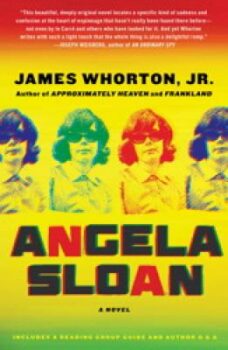 E. L. Doctorow said somewhere that he did not do historical research for his novels–he just wrote, and when some piece of information was needed it would “come to hand.” What’s your approach on this?
E. L. Doctorow said somewhere that he did not do historical research for his novels–he just wrote, and when some piece of information was needed it would “come to hand.” What’s your approach on this?
I don’t know that I believe Doctorow is telling the truth here. I mean, it is a fact that you use the historical setting and events as a kind of initial premise, and from there forward you write about your own life and worries just like you do in all fiction, whatever its genre or aesthetic structure. But if you are going to use an historical premise in that way, as far as I’m concerned you better do the damn work, including research if necessary, to make it accurate and believable. Not that you have to be confined by it, but like Henry James said, you let out the balloon slowly and once readers trust you enough, they’ll keep their eyes on the balloon and won’t notice when you’ve let go of the string. Don’t you think? That’s what you did in Angela Sloan, I’d argue.
I know I didn’t follow Doctorow’s advice with Angela Sloan. In that case, it was more like research as procrastination. I read a ton, and then I sort of had to forget all that in order to write the book. Speaking of reading, again—are there any novels you’d list especially as models for Estranged? Ones you had in the back of your mind as you were writing?
God, yes. Let’s start with the obvious ones, Hammett’s Red Harvest and Glass Key and Chandler’s The Long Goodbye, and then you’d have to add in at least Sue Grafton’s alphabet series, from which I learned if you set your story back in time you don’t have to worry about using the cell phone to push the narrative along. Also, obviously, I would think, I had in mind both Percy and Penn Warren, The Last Gentleman and All the King’s Men. Dostoyevsky gave me permission in Crime and Punishment to use a popular genre, the crime novel, for serious purpose, and then Nabokov, in his parody of Dostoyevsky narrators, Despair, taught me how not to take it so seriously. From Magic Mountain I took the notion of putting our current culture on ice, isolating it in time and space and seeing what we could make of it, and from Doctor Faustus how to allegorize both history and one’s own life. And Fred Exley’s “fictional” memoir A Fan’s Notes and John Le Carre’s Smiley novels gave me a couple of models for handling the ins and outs of time in storytelling. With a novel like Estranged, polished in fits and starts over a longish period, the number of those to whom you are indebted for inspiration and aesthetic know-how constantly grows till at last you just stand up and cry, “Enough already!”
Here’s a craft question. Towards the end there is a crucial scene, a separation, that is told in flashback. Can you talk about this choice? It’s a very emotional scene. You might have written the scene in real time, but instead we hear the memory of it playing through a character’s head while something else is going on in front of him.
Sure. But to answer it, I need to talk about an earlier flashback to an argument between Harker and his soon-to-be-estranged wife.
From the beginning, I knew I wanted to capture Harker actually writing a news piece about McKnight because in some workshop class long ago one of my teachers had pointed out, snidely enough, how seldom fiction ever covered real work in the real world. And also, I wanted to show how writing always takes place in situ, in a position already occupied by constant distractions. So, when I ran out of convenient spots to narrate the argument scene, it seemed custom made for what I was after. It also echoed a theme running throughout the novel about how history happens—never clearly, never flaunting what it means, but always obscured in flesh, hidden by the heat and the lust and the cold—and all the sad moments and memories—of everyday life.
So, then we come to the scene you’re talking about when Harker has just been left by another woman and can’t stop thinking about it. It’s at once, for me, an echo of the earlier flashback and its thematic import and a demonstration of how the narrator’s emotions affect his narrating. But I wonder whether I’d have done the latter that way without the first use of flashback to echo.

